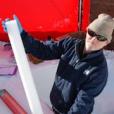
Mr Andrew Carriline is an experienced senior business executive, commercially astute and highly skilled at operating successfully in regulated environments.

Showing 481 - 500 of 1378 results

Mr Andrew Carriline is an experienced senior business executive, commercially astute and highly skilled at operating successfully in regulated environments.
Research on the mechanism of cell death has insights to bring progress on neurodegenerative diseases and plant biosecurity.
ANSTO offers access to a range of scholarships, awards, grants and prizes. Find out what's open for application.
ANSTO’s Australian Synchrotron has been working on an initiative that could substantially improve radiotherapy treatment for cancer patients.

Phoebe joined Taronga as part of the Wildlife Hospital team in 2012, where she developed a research interest in conservation forensics, leading an international project developing forensic tools to help save the world’s most hea

Atomic structure of new cathode material for sodium ion batteries helps explain long life


Winners of the Big Ideas Competition 2021
The complex engineering of scientific instruments is explored in this 'behind the scenes' look at the installation of frontends for two new beamlines at the Australian Synchrotron.

The Nobel Prizes for Physics, Chemistry and Medicine have been announced.
Research is being undertaken through an Australian Research Council Discovery Project "Reconstructing Australia’s fire history from cave stalagmites", led by Professor Andy Baker at UNSW Sydney and Dr. Pauline Treble at ANSTO. The project aims to calibrate the fire-speleothem relationship and develop coupled fire and climate records for the last millennium in southwest Australia.

The Australian Centre for Neutron Scattering (ACNS) is a major research facility for neutron science that comprises a suite of neutron instruments with a range of techniques for scientific investigations in physics, chemistry, materials science, medicine and environmental science among other fields.

ANSTO's OPAL reactor is one of the world's most advanced and reliable research reactors today. To ensure we can continue operating OPAL safely and reliably and maximise utilisation, ANSTO must regularly carry out maintenance and upgrades.
With a well-established portfolio of nuclear research and the operation of Australia's only nuclear reactor OPAL, ANSTO scientists conduct both fundamental and applied research on fuel for current, advanced, and future nuclear technology systems.

Professor Heywood holds a Bachelor of Science (Honours) in Biological Sciences from the Manchester University and a Doctor of Philosophy, Liverpool University.